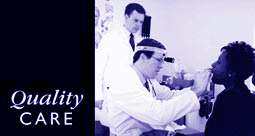

  The United States has a unique system of health care delivery, unlike any other health care system in the world. It is a kaleidoscope of financing, insurance, delivery, and payment mechanisms that remain unstandardized and loosely coordinated. Just as the slightest turn of a kaleidoscope produces a different pattern, so do changes in the legislative and regulatory governance of american health care alter the balance of quality, cost, and access for all patients.² The Academy works hard on behalf of its members to maintain an environment within which patients can be offered the best care. ² Shi, L and Singh, DA. Delivering Health Care in America: A Systems Approach. Gaithersburg, MD, Aspen Publishers, 1998. Making our voices heard on Capitol HillWhether it's policy or politics, advocacy or grassroots action, the Academy pursues an aggressive congressional and federal agency agenda that includes advocating for quality health care for all Americans and defending the most vulnerable members of our society.In Congress, the Academy has vigorously lobbied for a strong, comprehensive Patients' Bill of Rights that:
Physician payment reform continues to be a major focus of our legislative and regulatory campaign. The Academy works relentlessly to ensure that the resource-based relative value scale (RBRVS) of the Medicare physician fee schedule and Medicare's payment policies overall are fair and equitable to otolaryngologist—head and neck surgeons.  Our
efforts take many forms, including lobbying Congress, the Department
of Health and Human Services and its Health Care Financing
Administration (HCFA); working in coalitions with like-minded
organizations; and specifically working within the American Medical
Association's Relative Value Update Committee and its Practice
Expense Advisory Committee. The Academy is well represented on these
committees, with devoted volunteer Academy members effectively
guiding our efforts on survey data collection, analysis, and overall
representation. As a result of our collective efforts, Medicare
payments to otolaryngologists have been on a steady rise over the
past several years, while those of other specialties have fallen. Our
efforts take many forms, including lobbying Congress, the Department
of Health and Human Services and its Health Care Financing
Administration (HCFA); working in coalitions with like-minded
organizations; and specifically working within the American Medical
Association's Relative Value Update Committee and its Practice
Expense Advisory Committee. The Academy is well represented on these
committees, with devoted volunteer Academy members effectively
guiding our efforts on survey data collection, analysis, and overall
representation. As a result of our collective efforts, Medicare
payments to otolaryngologists have been on a steady rise over the
past several years, while those of other specialties have fallen.
The Academy is playing an important role in shaping the future hearing health care system in America. We convinced Congress to pass legislation, that is now law, offering grant monies to states to set up statewide infant hearing screening programs. We have worked tirelessly with the Department of Health and Human Services and its Food and Drug Administration on the regulations governing hearing aid sales and dispensing; and we continue to advocate at all levels of government on what is best for the patient when audiologists pursue an inappropriate expanded scope of practice agenda. © 2000 AAO-HNS, Inc. |